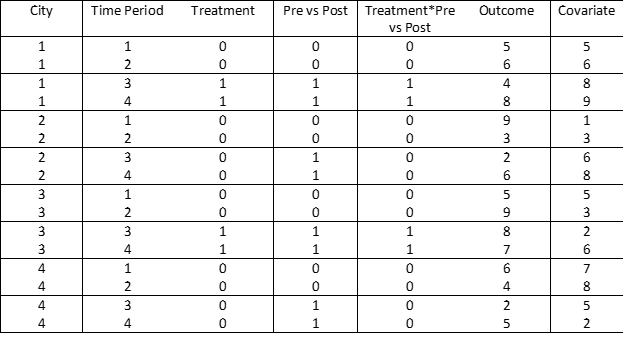I have a set of cities for which approximately half received an intervention and half did not. The intervention was a drug treatment program. All the cities that received the intervention received it at the same time.
I would like to setup a DiD where the Outcome is overdose deaths in cities and control for a few covariates. Based on my understanding, in DiD the impact of the intervention is based on the interaction of a treatment versus control variable and pre/post intervention variable.
My problem is the interaction term I create (Treatment*PrevsPost) is identical to the treatment variable. As a result, I’m not sure how to interpret the treatment effect. Would it simply be represented by the treatment variable? Any help would be greatly appreciated. Below is a simplified version of my dataset to illustrate the issue I’m having.
All the best

